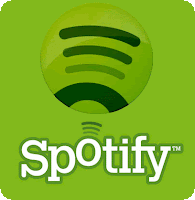To many historians the terms Industrial Revolution is a misnomer. Primarily because it actually took many years for our society to evolve from an agrarian based product system to a manufacturing based delivery method. Due to that name including the term "revolution" we tend to overlook the fact that society spent many years in the middle of an unknown changing marketplace. Families, employees, and employers did not know that eventually the introduction of steam power, railways, and the combustion engine would fuel a more advanced and wealthier society.
The same holds true in what we are facing in today's music marketplace. The advent of the Internet has drastically altered the music delivery system and this small ripple has created a wave of change in the business the size of a tsunami. One of the core components to the past music business marketing plan has been crushed by this wave of change. That component is called radio.
But I am here to tell you that radio isn't dying or dead. It is only changing and with that change has adopted a new name called "streaming."
There seems to be a lot of arguments about the viability of Internet based streaming services such as Spotify, Pandora, and MOG. Industry insiders claim that these services provide little, if any, revenue for artists, labels and songwriters. They have waged war on these services claiming that they steal download sales from artists and labels. A few artists and publishers have even pulled, or threatened to pull, their content from some of these services. Most recently Sir Paul McCartney pulled his content to reportedly force consumers to download his music from online retailers such as iTunes and Amazon where he earns a larger amount in royalties. See the article here.
While this may be a great idea for an established musical icon such as Paul McCartney it isn't a wise decision for newer artists. These services act as a new revolutionized radio model, but unlike traditional radio artists do not need to sell the gatekeepers on the idea of including their songs on the play lists. Any artist can upload their newest tune or album to any streaming service without having to shell out huge dough in promotion fees to wine and dine programmers to be let in.
What these services offer new artists is the opportunity to engage potential fans with their music for free. Any fan can sign-up for a free subscription to basically any streaming company and with that subscription they can seek out an artist or album they are interested in and have a no obligation listen to the music. There is a division in the industry as to if free services produce more download sales. Billboard reports that they do not. See the article here. Streaming service Last.fm reports otherwise. See their article here. Regardless of what industry insiders report these streaming services do offer something to new artists when it comes to revenue.
I myself am an active music downloader whom normally uses iTunes, but over the past few years I have become discouraged having to shell of $1.29 for a new tune or $9.99 for a new album just to find out that I didn't like the song or tracks 4, 6, 9, and 10. It has cost me hundreds in what I consider wasted downloads. Then last year I decided to try a streaming service on my iPhone. I downloaded the MOG app and subscribed for their monthly $10 subscription that lets me download tunes to my device for as long as I keep paying my subscription. Since then I have explored many new artists and dozens of new albums. Thanks to the service I realized how much I liked Adele's 21 and was happy to buy the entire album from iTunes for $10.99. More importantly I was open up to newer artists such as Trivium, Lana Del Ray, and Nada Surf among many others whom I would have avoided dropping $1.29 a track to find out if I liked them or not. I am one streaming user whom has checked out over 150 new artists thanks to my MOG account. If their music is good and appeals to me chances are I will buy their downloads, go to their shows, and purchase some of their merchandise. I would have never been opened up to these unknown names without my streaming account. Through the new industrialized radio I have received added benefits and the artists have received added benefits. Isn't that a core tenement in business? Think about my Adele experience. She got a streaming royalty from me listening to her album on MOG and a mechanical royalty when I downloaded the album. Before my MOG account she may have just got a royalty on one or two tunes, but thanks to the new radio I was able to experience her entire works without obligation and encouraged to buy her entire album. Your welcome Adele and Columbia Records.
I think it is imperative that those in the industry embrace streaming services. Even if they do not recognize them as the new radio. They help curb piracy, open up potential fans to new artists, and add more pennies into the artists royalty accounts. To succeed this industry must not challenge Eli's cotton gin, but rather embrace its potential to change the world.

No comments:
Post a Comment